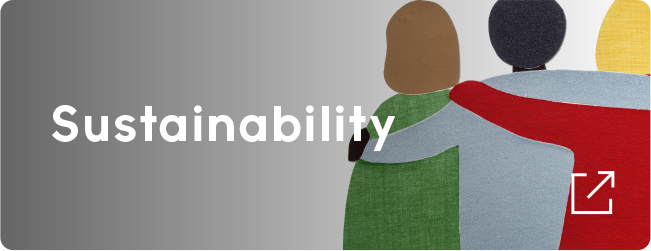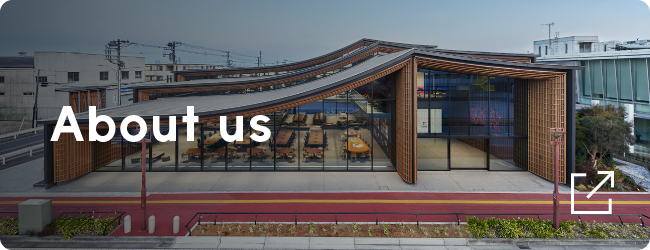- EN
- JP
Basic Policy
Environment
Social
© ZOZO, Inc. ALL RIGHTS RESERVED.
Institutions, culture, supervisors, and myself.
Pulling in the realization of women's active participation through DE&I initiatives of the company
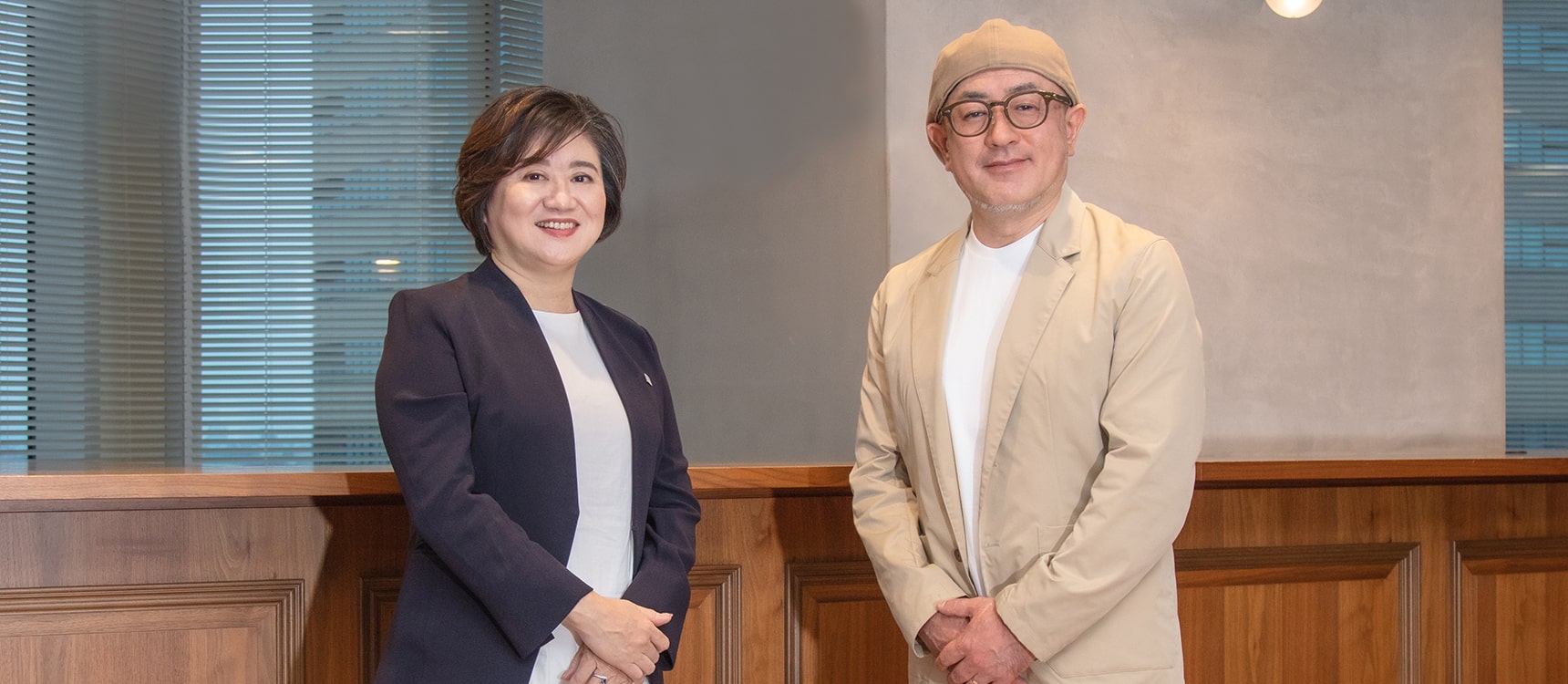
Representative Director
and President POLA Inc.
OIKAWA
Miki

Executive Officer
HR Division, Corporate Identity
Division
ZOZO
SHIMIZU Toshiaki
With “Fashion Connects and Leads us to a Sustainable Future.” as its sustainability statement, ZOZO aims to create a world where people can continue to enjoy fashion forever. One of our key actions is: ”Promote diversity and inclusion among everyone involved in fashion.”
Given Japan's low ranking in the Gender Gap Index among advanced countries(*1), it is evident that supporting women's active participation is crucial when advancing DE&I.
What is the responsibility of companies to change the current situation where there is structural discrimination based on gender?
Through a dialogue between SHIMIZU Toshiaki, Executive Officer of ZOZO, and OIKAWA Miki, Representative Director and President of POLA Inc., who vigorously promotes women's empowerment both internally and externally, we will delve into the creation of a society where everyone can unleash their full potential.
Why is Japan still considered a “lagging country in women's empowerment"?
— In Japan, there has been a growing movement to promote “women's empowerment,” but how do you perceive the current situation?
Oikawa : The situation has improved compared to the past, but I still think there's a long way to go. In fact, according to the “Gender Gap Index” released by the World Economic Forum in 2023, Japan ranked 125th out of 146 countries overall.
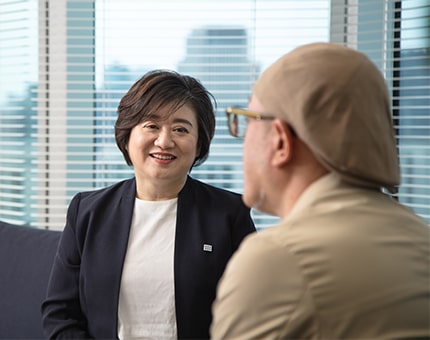
Shimizu : When I was in high school, I had a homestay experience in Canada. At that time in Japan, it wasn't common for men to actively participate in household chores and childcare. However, in the host family, it was a normal practice for both spouses to share household duties.
In advanced countries, the idea of dividing roles based on gender had already become outdated.
It's been quite a long time since then, but structural discrimination based on gender still exists in Japan. While it's desirable to see efforts being made to eliminate discrimination, I can't say that the pace is sufficient.
— Compared to advanced countries, why is Japan's Gender Gap Index higher? What are the reasons behind it?
Oikawa : There are various factors at play, but ultimately, I believe the main challenge lies in the lack of a societal foundation where women can recognize their own abilities and fully utilize them in the workforce.
In Japan, there has been a long-standing notion that “men work and women take care of the home.” While the situation is gradually changing, the support for women's active participation in society is still insufficient. As a result, we find ourselves unable to break free from ingrained values and beliefs.
Even within our company, we encountered situations where “unconscious biases” almost deprived women of opportunities to excel. When deciding on the members for an overseas business trip, we had not approached certain employees, assuming it would be difficult for them as they had just returned from maternity leave.
Upon realizing this, I conveyed that it should be up to the individuals to decide if they wanted to participate and reached out to them. To our surprise, they immediately responded with a resounding “Yes, I want to participate.” While unintentional and perhaps well-intentioned, such instances still deprive women of opportunities.
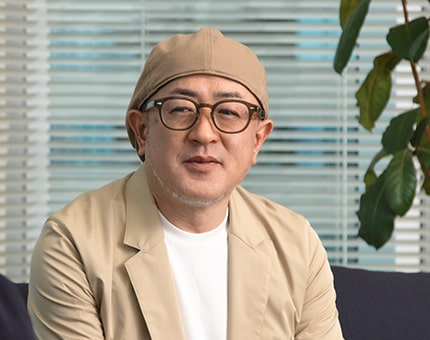
Shimizu : If such situations persist, I believe it can lead women to relinquish opportunities to shine on their own. In fact, even within our company, there are cases where women hesitate to express themselves openly, thinking, “I shouldn't step forward more than men,” and end up unnecessarily self-restraining. However, by doing so, we are limiting our own potential, aren't we?
Promoting Women's Active Participation: Not Just an Effort, but a Responsibility
— What actions do you think are necessary to change the current situation in Japan where women's active participation is lagging behind?
Oikawa : It goes without saying that we need to keep demanding the promotion of women's participation from the government, but I also believe that companies should proactively initiate change on their own.
Creating systems for maternity and childcare leave, establishing flexible and remote work environments, fostering a culture where individuality can be expressed regardless of gender—these are steps that can be taken immediately if we decide to do so.
Shimizu : You're absolutely right. Promoting women's active participation is indeed the responsibility of companies. At ZOZO, we have already started taking significant actions with the goal of achieving a 30% ratio of women in senior management positions by 2030. We are organizing training sessions, particularly for managers, to consider what hurdles hinder women's progress and what systems and environments are needed.
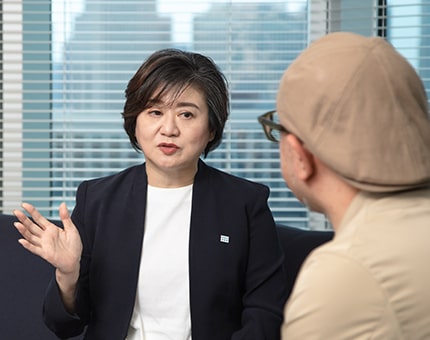
Oikawa : Conducting such training is crucial to eliminate the “unconscious” biases and considerations from our minds. Providing opportunities for skill development is also essential.
However, Japanese women are burdened with busy schedules. The unpaid labor time of women in Japan is 5.5 times that of men(*2). Women who are working and raising children can't even find the time to invest in themselves.
If corporate leaders understand this reality, they can create opportunities for skill development within working hours. While providing such opportunities, we should also share the actions we implement as case studies with society, so that more companies can sincerely engage in this effort by changing the environment.
Empowering Society to Unleash the Potential of Everyone
— “POLA” has been proactively promoting women's participation from an early stage. Looking back, were there any effective initiatives or systems?
Oikawa : Although not a system, “POLA” has 14 voluntary working groups (as of 2023). For instance, there is a project called “Support for Maternity and Childcare,” where employees with parenting experience provide guidance to colleagues who are considering or on parental leave. They discuss how to apply for allowances and use the system during childcare leave, and how to balance life and work after returning from leave, irrespective of gender.
When promoting women's participation, top-down decision-making is essential. However, it's not enough; it only works when combined with bottom-up reforms.
We should listen to proposals, approve them, and then work together to realize them throughout the company. By establishing such a cycle, not only women but everyone can work in an organization that respects their uniqueness and is easy to work in.
— It seems that not only improving systems but also fostering a culture is necessary to achieve DE&I.
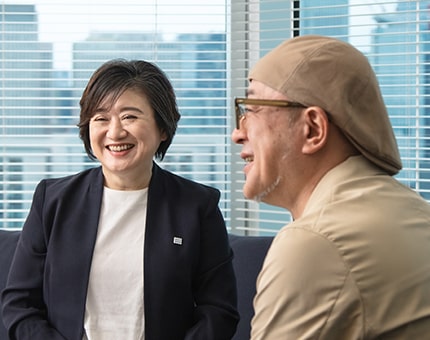
Oikawa : Indeed, the atmosphere is crucial. For example, when an employee returns from parental leave, there might be a temporary dip in job performance due to the break. However, if we create an atmosphere that doesn't view this as a negative but instead encourages new challenges in the changed circumstances, they will surely demonstrate their full potential.
Shimizu : Everyone has their own unique qualities, and this can change depending on their life stage. Respecting and encouraging these qualities is the very strength of a company.
To achieve that, we need to repeatedly convey the message, “It's okay to rely on others.” One day, we will also find ourselves in a position to offer help, so when the time comes and support is needed, we should boldly seek it. By doing so, the members we rely on will also be given opportunities to grow. In reality, there are not many instances where someone is at a disadvantage.
Rather than overthinking the difficult parts, creating a sense of normalcy where “it's natural to rely on others when in need” might be the first step.
Oikawa : At this point, we must turn the minority into the majority. It should be commonplace for people to rely on others when they need help, for women to hold managerial positions, and for men to take parental leave. By creating examples and disseminating them, we can fulfill the responsibility of companies.
Shimizu : Listening to your insights, I realize that there is still much to be done. By correctly understanding the hurdles to women's active participation, creating systems and culture, and sharing our concerns and knowledge, let's continue building a society where everyone can unleash their potential.


